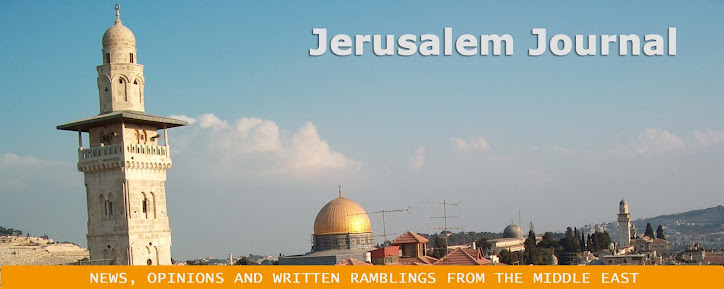April 25, 2009
Article first published here.
JERUSALEM -- As Armenians around the world gathered Friday to remember their tragic shared heritage, President Barack Obama called the 1915 massacres of 1.5 million Armenians by Turks a “great atrocity,” but failed to label it genocide as he’d promised during his campaign.
The president’s position disappointed many Armenians, who feel the U.S. is once again downplaying the mass murders.
“At least when someone promises, as a presidential candidate, something of this significance, we expect him to be true to his promises,” said Sarkis Mesrobian, an Armenian pilgrim to Jerusalem from Los Angeles.
In a speech on Friday, Obama called the killings “one of the great atrocities of the 20th century,” but fell short of campaign promises, as have many of his predecessors, to label it a genocide.
In many ceremonies and protests around the world, the mood of the day revolved around expectations over Obama’s promises and strong record on the genocide. Armenian groups were confident that Obama and the U.S. Congress would officially recognize the genocide despite jeopardizing relations with Turkey.
On his website, Obama even writes that, “the Armenian genocide is not an allegation, a personal opinion or a point of view, but rather a widely documented fact supported by an overwhelming body of historical evidence. America deserves a leader who speaks truthfully about the Armenian genocide and responds forcefully to all genocides.”
In a written statement today, Obama said his “view of history has not changed.”
Nevertheless, in a ceremony in Jerusalem on Thursday, a priest in the Armenian monastery, Father Pakrad, called Obama’s previous statement a “pledge gone with the wind.”
“We are fully aware that the Armenian Genocide issues has become a political stand for the U.S. government instead of its becoming a pure moral issue,” he said in a speech. “Obama believes that each country must work through its past and hold out the promise of a new day. One thing he is not aware of is that ever since the Armenian Genocide our history has been halted because the genocide issue is unresolved.”
The United States and Israel, both with significant Armenian populations, are among the countries who have yet to officially recognize the genocide. Ankara denies that a genocide occurred and says the death toll has been inflated and was a result of civil war.
Even if Obama was on course to recognize the genocide, his intentions could have been derailed with an announcement this week by Turkish and Armenian officials that they are negotiating to ease a 16-year economic blockade Turkey has placed on Armenia since its war with Azerbaijan.
Obama praised the two countries’ efforts to overcome their differences and said he was “not interested in the U.S. tilting these negotiations one way or another while they are having a useful discussion.”
As they did in cities around the world, Jerusalem Armenians held a mournful memorial mass today then staged a protest at the Turkish consulate. Congregants packed into Saint James Armenian church for a two-hour long service in memory of relatives killed in death marches, massacres, starvation and disease. Outside the Armenian monastery in the Old City, posters in three languages called for genocide recognition.
Just days after the Jewish Holocaust Memorial Day in Israel, Armenians in Jerusalem pled with Israeli passersby in Jerusalem’s Old City to recognize their own plight. A scattered few Israelis who did join the memorial in Jerusalem said they felt shame that their government wouldn’t officially recognize the genocide.
Lehi Shachar, a student from Haifa, came to Jerusalem to stand in solidarity with Israel’s Armenian community.
“I wanted to come, especially on this day, to identify with the people because of our history,” she said referring to the Holocaust against the Jews in Nazi Germany. “It is absurd that the Israeli government doesn’t recognize this day.”
A Turkish reporter covering the Jerusalem protest said he admits there were killings, but he “cannot call it an ethnic cleansing.”
“The diaspora Armenians want first that they recognize it as a genocide, but the Armenians in Armenia want dialogue,” said Osman Sert, Jerusalem bureau chief of TRT. “This (genocide recognition) is blocking everything. “In Armenia, they have economic problems and they want normalization.”







